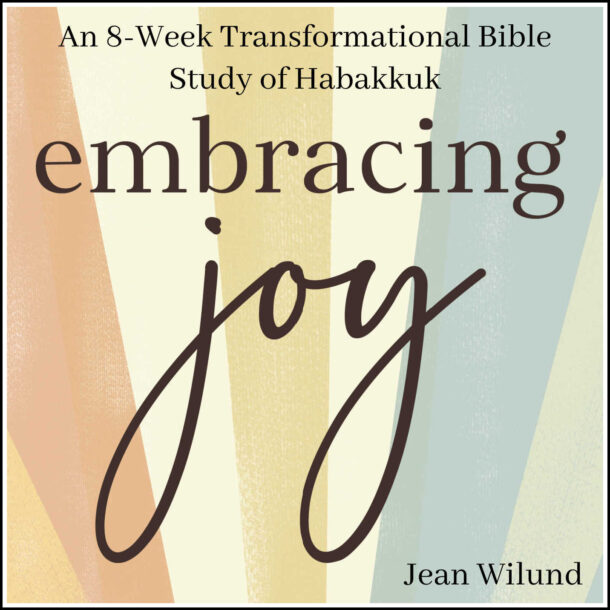
This post first appeared on Revive our Hearts, a ministry I highly recommend for their incredible resources and commitment to sound biblical teaching.
If you missed Part 1 of this series, start here:
Christianity Doesn’t Have to be Wearisome or Bible Study Boring:
How to Fall in Love with the Bible (Part 1)
When my dad spoke, I listened—except when I was engrossed in a TV show. Those times, I’d look him straight in the eyes, say, “Yes, sir,” and then panic after he drove off because I had no idea what I’d promised to do while he was gone.
My dad was a kind man, but he demanded respect and obedience. When he spoke, he didn’t mean, “Hear my words but do whatever you want.” He meant, “Hear my words, understand what I’m saying, and respond in proper obedience.”
Our kind heavenly Father calls us to the same, if not a greater, level of hearing (Luke 11:28; Matt. 7:24; 1 John 2:3–6). I call this shema-hearing, based on the wonderful Hebrew word shema.
Shema implies a fullness of listening where we hear the Word of the Lord, understand its meaning, and respond in proper obedience.
Right before God gave the Israelites the Ten Commandments, He demanded their full attention, saying, “Shema, Yisrael.”
Hear, O Israel [Shema, Yisrael]: The LORD our God, the LORD is one. You shall love the LORD your God with all your heart and with all your soul and with all your might. And these words that I command you today shall be on your heart. (Deut. 6:4–6)
Hear, O Christian
Like the Israelites in Deuteronomy 6, God calls Christians to hear, understand, and respond to the Truth that He is the Lord and there is no other besides Him.
He is the Triune God: Father, Son, and Holy Spirit. And we are to love Him with our entire being—all of our heart, soul, mind, and strength. We’re to fix our hearts on His Word so that it continually holds our attention and directs our every decision (Mark 12:29–31).
This is the heart of Bible study and “The Character of God Bible Study Method” (which I’m about to explain):
We are to hear God through His Word, to understand who He is and what He’s said, and to respond out of grateful hearts in humble obedience to what He has shown us about Himself and what He’s doing.
As we linger in the pages of the Bible and practice shema-hearing, the Holy Spirit will open our eyes to see who God truly is.
And we’ll never be the same.
The Character of God Bible Study Method
This Bible study method isn’t a three-step miracle to a victorious Christian life. Methods don’t transform. God does. He is our prize of great worth.
Any transformation we experience as we use this method is the happy result of hearing, understanding, and responding to the God of the Word through the Word of God. Shema!
When you read the Bible, keep these three questions in mind:
1. HEAR: What is God saying to the original audience?
The Bible’s authors wrote for the people of their time. But God also meant it for us (1 Cor. 10:11; Rom. 15:4). The authors wrote in a manner their contemporary audience understood but that doesn’t always make sense to us.
If we jump straight to what the passage means for us today with our 21st-century mindset, we’re likely to make it mean something God never intended.
If we remember the passage’s historical, cultural, and literary context, we’ll avoid inserting our modern worldview into the ancient text.
Consider questions like these as you read:
- What was happening in history at the time this book was written? (Was Israel in captivity? What kind of king sat on the throne?)
- What cultural elements of their time need to be considered in the passage? (How did the ancient culture view strangers and hospitality? What were the common rules of warfare in their day?)
- How does the type of literature the author wrote affect the passage’s meaning? (Was this author using poetic symbolism and imagery? Is this a historical book giving literal details?)
If you don’t know the answers to these questions and others like them, don’t worry. A good study Bible (such as the Reformation Study Bible, the MacArthur Study Bible, or the ESV Study Bible) or website (like BlueLetterBible.com) can provide great insight into the ancient culture and context.
While you’re learning, keep reading through the Bible and reminding yourself never to forget you’re reading an ancient text through your 21st-century lens.
2. Understand: What does this passage reveal about the nature, character, and ways of the Father, Son, and Holy Spirit?
The more we see and understand about the Father, Son, and Holy Spirit, the more our hearts will soften toward the things of God. We’ll respond with conviction, repentance, and true worship—especially in light of how the Bible shows us how unlike God we are.
As you read through a passage, write down what God has revealed about Himself, His character, or His ways.
- What does God teach the original audience (and us) about the Father, Son, and Holy Spirit in this passage?
- How do we see the presence or work of Jesus in this passage?
- In what way is the work of the Holy Spirit in view?
- What truths does God expose about man and our true nature?
3. Respond: Ask yourself, “If I really believe and act on what God has revealed, how will my heart be changed and my life be different tomorrow?”
Belief demands a response. Or as James teaches, “faith apart from works is dead” (James 2:26).
True belief not only demands a response, it can’t help but respond. And it results in having a peace and joy independent from our circumstances. It anchors us in the unchanging bedrock of God Almighty.
- What kind of response does Scripture lead us to in this passage? Conviction? Repentance? Worship?
- Are there any promises I need to remember or trust God to keep?
- Has this passage revealed an area of sin in my life? Or unbelief in my heart about God?
- Is there anything I need to confess? Do I need to seek forgiveness?
- Are there ways I’ve been making the Bible about myself rather than about God and His glory? The Bible is for us, not about us. It’s all about Christ.
Fix Your Eyes upon Jesus
In the past, I’d read a Bible passage and immediately ask myself application-type questions, rather than first looking for God in the text.
Rather than responding to what I learned about God, I made the text about me and how I should live. I’d inadvertently turned Christianity into a life of “read this, then do that, and you’ll be happy.” Except I wasn’t happy. I was exhausted.
Once I quit applying the truths like well-learned lessons, and instead, fixed my eyes on the Triune God, I couldn’t look away.
The truth of who He is soaked into my soul, and my heart began to love what He loves and hate what He hates. His Word began to direct all my interactions and thoughts as a natural overflow rather through a wearisome effort. God was glorified, and I was joyful and energized.
The Miracle of God’s Word
I told my son after the birth of his twins that the most dangerous thing he could do as a father or husband is to stop reading the Bible.
It’s easy to be overwhelmed by life and responsibilities, to be consumed by great and wonderful things like the birth of your children—especially twins. But if we allow anything to keep us from God’s Word, we cut ourselves off from the Bread of Life who feeds our soul. We set ourselves up for discouragement, frustration, and powerlessness, which impacts every area of our lives and those we love most.
As my son raises his children into adulthood, he’ll expect them to hear what he says, understand what he means, and respond out of obedience—even if they’re engrossed in a TV show. He’ll demand this because he loves them.
God has set His love on us. Oh, that we would have hearts willing to set aside the time to linger in His Word and look for the One who loves us most. Shema!
When I think back to those early days and hard years when Christianity seemed wearisome and Bible study was boring, I marvel at the miracle God’s Word has done in my heart and mind.
What about you? Does Christianity ever feel wearisome and Bible study bore you?
Seek the God of the Word through the Word of God. Discover the glorious truths He’s revealed about Himself on every page, and let them transform you. Shall we get started?
In the beginning . . .






